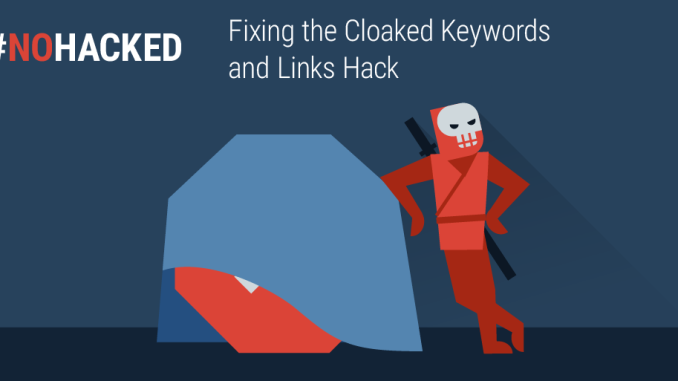
So far on #NoHacked, we have shared some tips on detection and prevention. Now that you are able to detect hack attack, we would like to introduce some common hacking techniques and guides on how to fix them! Fixing the Cloaked Keywords and Links Hack The cloaked keywords and link hack automatically creates many pages with nonsensical sentences, links, and images. These pages sometimes contain basic template elements from the original site, so at first glance, the pages might look like normal parts of the target site until you read the content. In this type of attack, hackers usually use cloaking techniques to hide the malicious content and make the injected page appear as part of the original site or a 404 error page. Fixing the Gibberish Hack The gibberish hack automatically creates many pages with nonsensical sentences filled with keywords on the target site. Hackers do this so the hacked pages show up in Google Search. Then, when people try to visit these pages, they’ll be redirected to an unrelated page, like a porn site for example. Fixing the Japanese Keywords Hack The Japanese keywords hack typically creates new pages with Japanese text on the target site in randomly generated directory names. These pages are monetized using affiliate links to stores selling fake brand merchandise and then shown in Google search. Sometimes the accounts of the hackers get added in Search Console as site owners. Lastly, after you clean your site and fix the problem, make sure to file for a reconsideration request to have our teams review your site. If you have any questions, post your questions on our Webmaster Help Forums! .blgimg1 { width: 100%; padding: 0 0 -10px 0; margin: 0; border: 0; } .blgimg2 { width: 100%; padding: 0 0 -10px 0; margin: 0; border: 0; } .blgimg3 { width: 100%; padding: 0 0 -10px 0; margin: 0; border: 0; } .blgimg4 { width: 100%; padding: 0 0 -10px 0; margin: 0; border: 0; }
Source: Google Webmaster Central Blog
Link: #NoHacked 3.0: Fixing common hack cases



Leave a Reply